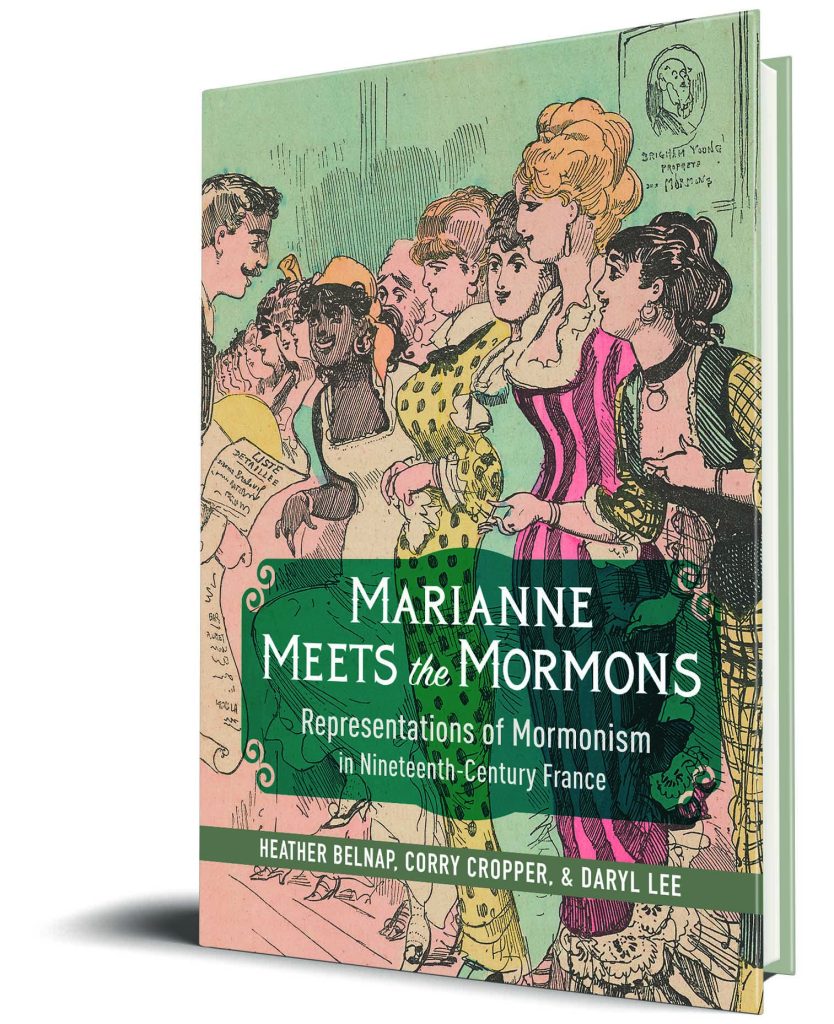Heather Belnap, Corry Cropper, and Daryl Lee, authors of Marianne Meets the Mormons: Representations of Mormonism in Nineteenth-Century France, answers questions on their scholarly influences, discoveries, and reader takeaways from their new book.
Q: Why did you decide to write this book?
We knew there was unexplored material on nineteenth-century French Mormonism and wanted to demonstrate that the history of global Mormonism was more than an Anglo-American phenomenon. A professional conference in 2012 (aka “the Mormon moment”) gave us an occasion to begin looking at these literary and visual texts and ask what kinds of questions these generated. Once we started researching in earnest, we were blown away by the sheer amount of material on the topic and knew that we needed to write a book.
Q: Who were your biggest influences?
In terms of Mormon Studies, we were particularly interested in the work of Megan Sanborn Jones, Spencer Fluhman, Terryl Givens, and Paul Reeve, who wrote about Mormonism as a construct against which America defined itself. We noticed something very different happening in France where cultural and geographic difference meant that Mormonism was not an existential threat but an idea that could be used to work through various French social issues.
Q: What is the most interesting discovery you made while researching and writing your book?
In the French National Archives, we found nineteenth-century handwritten operettas about Mormonism that were staged by the same state-sponsored theater featured in Zola’s novel Nana.
Q: What myths do you hope your book will dispel or what do you hope your book will help readers unlearn?
That Mormonism’s cultural and theological impact was exclusively an American concern. In fact, French writers and illustrators knew much more about Mormonism than one might think and frequently referred to it in a variety of cultural contexts.
Q: What is the most important idea you hope readers will take away from your book?
That Mormonism as an idea or construct functions differently in different national and cultural traditions. Our twofold ambition is first to propose a new way to think of Mormonism by asking how Mormonism as an idea is adapted and how it functions in a non-American context; and second, to study how an emergent, non-Catholic religion exposes French anxieties around the key nineteenth-century issues of religion, politics, socialism, gender, the family, and colonialism.
Q: What do you like to read/watch/or listen to for fun?
Corry: I like to watch European sports (F1, soccer, rugby, cycling) and read novels by Pascal Garnier.
Heather: Read: cookbooks; Watch: British crime shows; Listen: Eurodance and hiphop
Daryl: Read: French crime fiction; Watch: crime series, soccer; Listen: jazz, electronica

